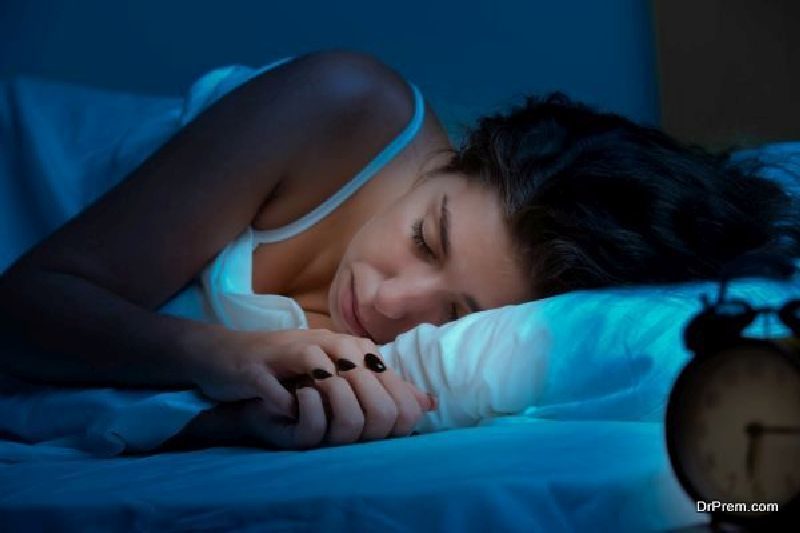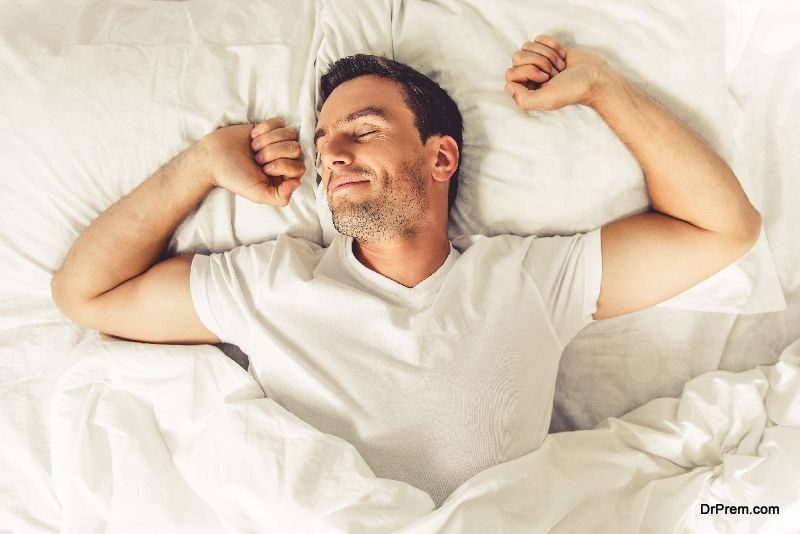The average adult should get between 7 and 8 hours of sleep a night. But how much shut eye do we actually get? The average person sleeps approximately 6.8 hours per night and overall, 40% of Americans are not sleeping the recommended amount.
But why is getting adequate rest so important? Here we’ll examine the importance of sleep on overall health, some common sleep disorders, and ways to help get a better night’s rest.
Why We Need Sleep

So, you know that you’re supposed to get eight hours of sleep a night, but do you know why? Sleep not only gives our bodies and minds time to rest, but it also helps with information retention, alertness, muscle growth, tissue repair, and synthesizing our hormones.
Did you know that your brain is just as active during sleep as it is during awake hours? That’s because, during sleep, your mind is sorting through countless pieces of information – disposing of what you no longer need, and organizing what’s left. Your brain is also building memories while you sleep, which some believe leads to dreams related to recent events.
Your growth hormones have a field day when you’re sleeping, and this goes for children and adults alike. Whether it’s muscle repair from a hard workout, or your body healing a recent wound, hormone growth is an important part of your sleep cycle.
Did you know a good night sleep can actually help you maintain a healthy weight, too? That’s because too little sleep leads to an imbalance in your body’s hunger-regulating hormones – leptin and ghrelin. This means that without a good night’s sleep, you’re more likely to reach for that bag of chips or slice of cake.
Why You May Not Be Sleeping Well
Okay, so now that you know why it’s important to get a good night’s sleep, let’s discuss some common causes for lack of sleep, restless sleep, or inconsistent sleep patterns.
Insomnia

Insomnia is an extremely common sleep disorder that makes it difficult for sufferers to fall asleep, stay asleep, or both. Often times insomnia patients never feel fully rested or wake feeling just as exhausted as they did before they went to bed. Insomnia is a chronic condition for some people, while others may experience it on a short-term basis.
There are actually certain risk factors that can cause insomnia. These include, but aren’t limited to:
- Change in work shifts/hours
- Medical conditions
- Emotional disorders
- High levels of stress
If you’re finding it difficult to fall asleep or stay asleep and wake not feeling rested, you may be suffering from insomnia.
Irregular Sleep-Wake Syndrome
This is a rare but still very real disorder that results in disrupted sleep throughout the night. People suffering from irregular sleep-wake syndrome only sleep between one and four hours at a time. Their sleep patterns are unstructured and do not follow any particular pattern or schedule. Sufferers actually get an adequate amount of sleep throughout the day, but they do so over an entire 24-hour period, versus the seven or either hours at night when most people sleep. These unstable sleep patterns can lead to drowsiness during the day and even insomnia.
Irregular sleep-wake syndrome has a lot to do with the body’s circadian rhythms, which is how your body naturally responds to light and dark. These rhythms act like an internal clock, telling your body when it’s time to sleep and when it’s time to be awake. When your body’s circadian rhythm is nonexistent, so is your internal clock which helps regulate sleep.
Some factors that can cause a disruption in sleep patterns include working shift work, changes in time zones, not keeping a regular or consistent schedule, and aging.
Anxiety Disorder/Stress

Though these two factors are not totally related, they can be the underlying causes. We all know that stress can have some pretty substantial, physical and mental impacts on our bodies. But stress related to lack of sleep is usually triggered by a certain event or condition, for example, acute stress disorder (ASD) or post traumatic stress disorder (PTSD).
ASD is usually caused by a traumatic event. Symptoms can surface up to one month following the event and last anywhere from a few days to a few months. Events that spark ASD can include a death, the threat of death to oneself, or the threat of physical or serious injury to oneself. Symptoms of ASD are very similar to those exhibited by PTSD sufferers. These include:
- Feeling emotionally unresponsive or numb
- Dissociative amnesia
- Depersonalization
- Derealization
- Reduced awareness of your surroundings
PTSD is similar to ASD but symptoms often last much longer and can be debilitating. People often suffer from PTSD after witnessing traumatic events such as time spent in combat, natural disasters, or a physical or sexual assault.
One of the most common types of anxiety disorders is generalized anxiety disorder, or GAD. Sufferers worry over common occurrences. A normal level of anxiety or worry about everyday things is common and occurs once in a while. Those suffering from GAD worry all day, every day, sometimes for reasons they can’t explain.
When someone with GAD is experiencing anxiety, with no real cause or reason, it can negatively impact their social life, relationships, and interrupt everyday functions – one of which is sleep. Causes of GAD include childhood abuse, a family history of anxiety, and prolonged exposure to stressful conditions.
What You Can Do About It
There are several ways to address any number of sleep disorders, but there are also some strategies available to improve your sleep and wake feeling refreshed and energized. Here are some of the most common and simple tips for getting a better night’s sleep.
Consider What You Consume Before Bed

Limit your body’s intake of alcohol, caffeine, nicotine, high-sugar foods, and large meals before bed. All of these components can lead to a restless night’s sleep filled with disruptions.
Wind Down Before Bed
Although your brain works hard throughout the night to organize your thoughts and memorize important bits of information, we don’t want it working too hard! This means de-stressing before bed each night. Try some mindfulness exercises, meditation, or even just some deep breathing. Relax your body and mind before climbing beneath the sheets.
Natural Sleep Aids
If you’re not one for taking medication, it’s okay, you don’t need to take a sleeping pill in order to get a good night’s sleep. There is a long list of natural sleep aids available, some of which include melatonin, certain oils, chamomile, lavender, certain electronic devices, and valerian root.
Improved Sleep Environment

As we said earlier, your body reacts to lightness and darkness. The darker your room, the more likely you’ll drift into a deep, peaceful sleep. Purchase room-darkening shades for your windows or an eye-mask to wear at night. Limit TV time before bed, as this can over stimulate even the oldest adults. Invest in a comfortable mattress and reduce noise at bedtime as much as possible.
Sweet Dreams
We all need a good night’s sleep to have quality, productive days. Our body’s rejuvenate at night and this is an important part of living a well-balanced and healthy life. Some sleep disorders may require medical attention, whereas others can be fixed with a shift in perspective and some minor environmental changes.
Be aware of what your sleep patterns are and what external factors may be negatively impacting them. Once you discover this, you can take the necessary steps toward addressing them.
Article Submitted By Community Writer




